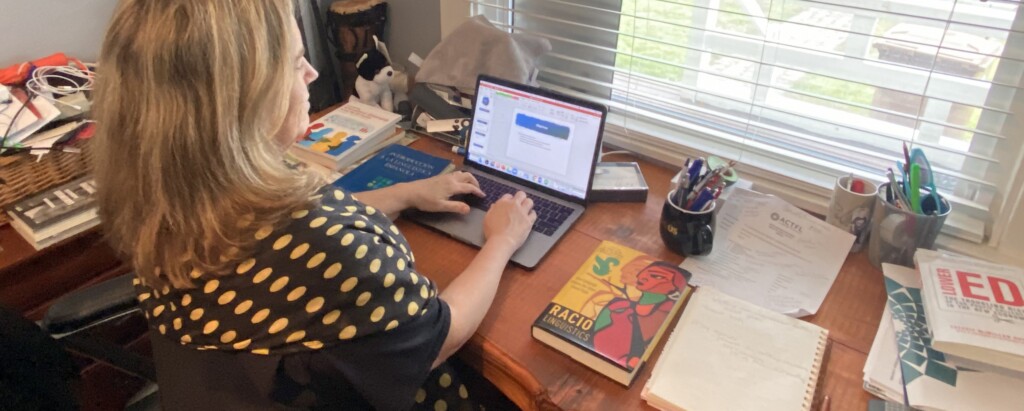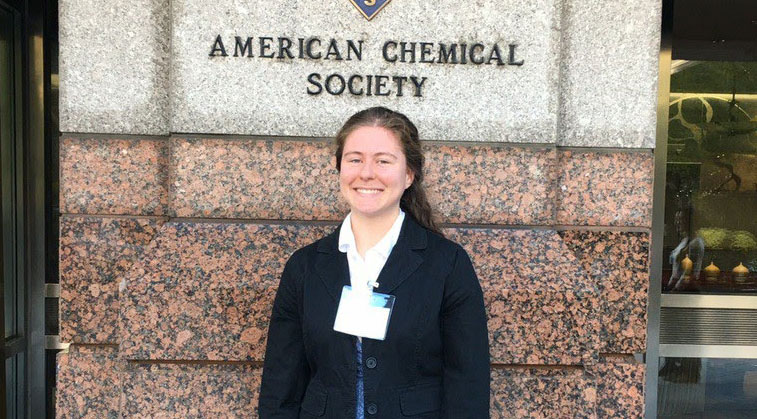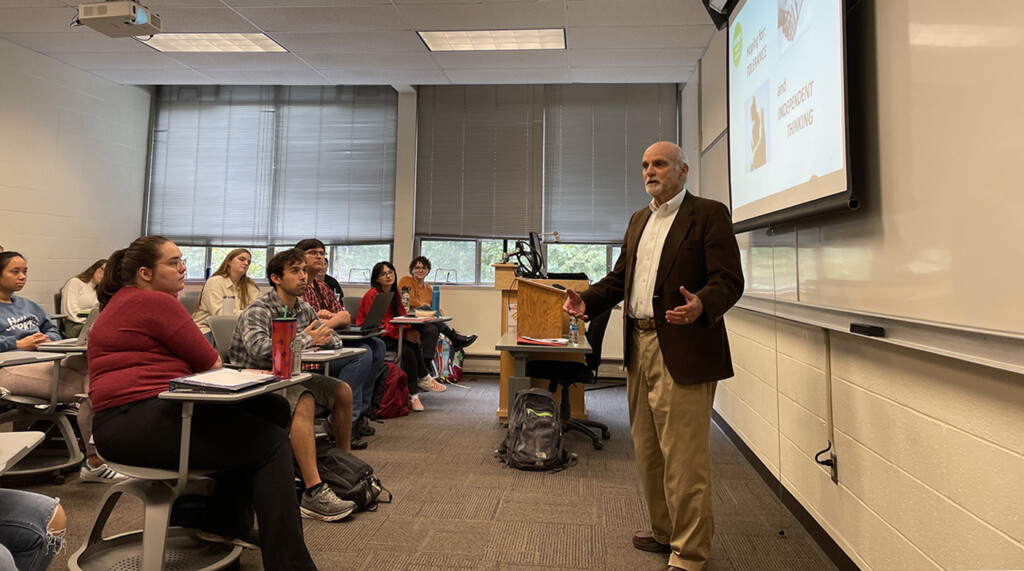Page 340 • (3,548 results in 0.071 seconds)
-

we’ve just been there to listen to each other. The larger language teaching profession nationally has been amazing as well — so many free, online webinars, Facebook Live sessions, Google docs of resources, and virtual book clubs. Even though we are practicing social distancing, in many ways we are more connected than ever. Read Previous Prof. Gregory Youtz talks transitioning classrooms and teaching styles to distance learning Read Next PLU donates medical supplies to help Pierce County in fight
-

me about ways people perceive and interact with the environment and asked me to critically consider negative social externalities that arise from pollution and other concerns. I really enjoyed these classes but wanted the opportunity to take more math and science courses and ended up shifting the environmental studies degree to a minor and adding a chemistry major. The Hispanic Studies degree was really inspired by my high school Spanish teacher. I took AP Spanish 4 and 5 in high school and loved
-

. As a social work major, Willburn believed that the experience gained from working alongside DCYF would benefit not only her but her future clients. But the internship didn’t pay enough to cover costs associated with the training.Normally students in Willburn’s situation would be forced to pass up an internship opportunity like this. Fortunately for Willburn, PLU was able to secure donations to provide her, and others like her, with a scholarship from its Internship Fund. “This fund allowed me to
-

reflection on this subject begins with the “Introduction to Holocaust & Genocide Studies” course, which serves the minor but is also a general education course open to all PLU students. Professors from the history, English, German, religion, social work and Hispanic Studies departments worked together to create the course to allow students to investigate the intersections of dehumanization, violent oppression, cultural destruction, and war. “We wanted to highlight the interdisciplinary and global focus
-

adrenaline rush, and my brain works well in stressful situations.” Eventually, Surla plans to earn a master’s degree focusing on mental health and human behavior. Inequity concerns Surla—she notes that income and wealth play major roles in health determinants. In the future, she hopes to work with “like-minded individuals that want to advance innovations in health care by advocating for responsible and progressive social changes that provide improved health care outcomes.” “The one thing I can control
-
Committee, and served as a co-founding member of the Family Clinic. Molly volunteered early with the Associated Ministries’ Food First program, an effort which led to the formation of the Lakes Area FISH Food Bank in 1974. She remained actively involved with this service for more than 40 years, training each of its volunteers. Lakewood, which wasn’t unincorporated until 1996, lacked many social services. Earlier attempts to strengthen the community led to the formation of Lakewood United, an effort that
-
a solid foundation in social sciences as well as a lifelong appreciation and joy of music.Luke LatimerLuke came to PLU from Boulder, Colorado and graduated with a Bachelor of Science in Chemistry in 2011. Luke’s passion has always been for the sciences, but he found himself increasingly interested in music during his time at PLU. Though not a Music major nor even a Music Scholarship Student, Luke performed in the University Symphony Orchestra every semester during his time at PLU, except the one
-
and prepare for successful careers. “It was heartbreaking,” she said. “It was hard, because my friends were all away at soccer during the week and on the weekends. I just tried to become more involved on campus. I tried to enjoy the social aspect of college more.” She wasn’t used to having so much free time, but those newfound hours weren’t all bad. Daly always wanted to get involved in the athletic-training room at PLU, but her soccer schedule kept her too busy. After her diagnosis, she had the
-
CashCourse10 Ways to Protect your Identity through CashCourse1. Don’t give personal information over the phone. Tell anyone who calls asking for your Social Security, credit card, or bank account numbers that you don’t give that information over the phone and that they can contact you by mail. 2. Go paperless. If you haven’t already done so, sign up for paperless billing with your creditors, bank, utilities, etc., to receive billing statements online through secure sites. 3. Shred everything. Shred or
-
CashCourse10 Ways to Protect your Identity through CashCourse1. Don’t give personal information over the phone. Tell anyone who calls asking for your Social Security, credit card, or bank account numbers that you don’t give that information over the phone and that they can contact you by mail. 2. Go paperless. If you haven’t already done so, sign up for paperless billing with your creditors, bank, utilities, etc., to receive billing statements online through secure sites. 3. Shred everything. Shred or
Do you have any feedback for us? If so, feel free to use our Feedback Form.


